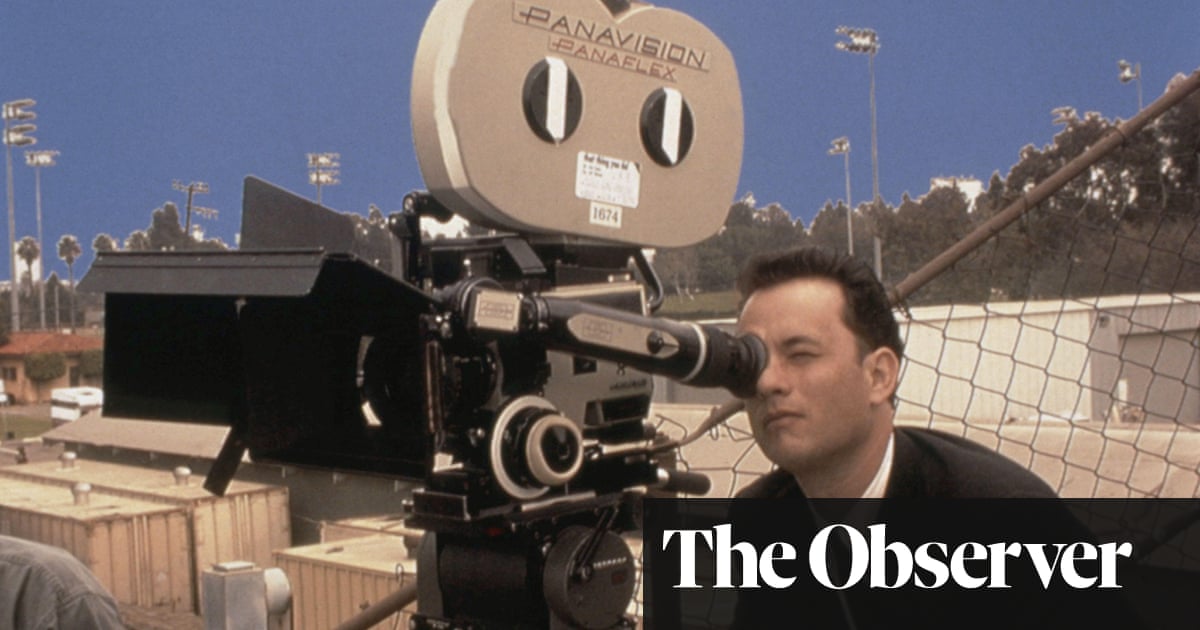
avid Fincher has dreamed the life of Hollywood screenwriter Herman J Mankiewicz; the result looks gorgeous, and sounds gorgeous. It’s a swooning monochrome fabrication of exactly the kind of golden-age Hollywood picture of the 30s and 40s that Mankiewicz worked on, sometimes without billing, until he grabbed a chance to create an authentic masterpiece in 1941: Citizen Kane. He finally accepted a quarrelsome co-writing credit with Orson Welles, sharing with him the film’s one Oscar, for best original screenplay. Apart from everything else, Mankiewicz helped to create a cottage industry in the world of criticism: in a famous contrarian essay of 1971 Pauline Kael declared the praise for Citizen Kane really belonged with unsung Mankiewicz – thus tweaking the nose of certain macho-auteurist male critics.
Gary Oldman plays Mankiewicz, all bleary cynicism, dishevelled hair, acid wisecracks and acid reflux from the alcohol, often dictating the script of Kane from an invalid’s bed (thus weirdly reminding you of his performance as Churchill). Tuppence Middleton gives a shrewd, affectionate performance as his long-suffering wife Susan. Marion Davies – with whom Mankiewicz was acquainted via his connection with Davies’s nephew, the screenwriter Charles Lederer – is played by Amanda Seyfried and her sugar-daddy boyfriend William Randolph Hearst, the bloated old media plutocrat and Kane-model himself, is played by Charles Dance, who is a rather sleeker figure than the original. Tom Burke plays Welles in cameo. It’s a heartfelt, irresistibly watchable film, which incidentally serves up a quasi-Rosebud theory about the genesis of Kane.
Fincher creates the fiction that Mankiewicz wrote the script while laid up with a broken leg after a car accident. In actual fact, he started to write it after he’d recovered from the injury, but Fincher insists on this fantasy of writing it in medical seclusion to emphasise this idea of (mostly) sole authorship. Mankiewicz and his un-merry band of writers are made to look bleary and charmless, sexist and cynical for the most part, each of them inelegantly burdened with regret for neglecting previous careers in literature and theatre. But Fincher also makes Mankiewicz more of a secret philanthropist than he was, and certainly more of a social A-lister, fantasising about the rumpled Mank hanging out at San Simeon at Hearst’s swanky parties, as the all-licensed court jester.
So this heartfelt, extravagant movie is about a reporter-turned-screenwriter who didn’t get his due until the very end and even then was overshadowed. But could it be that Gary Oldman’s smart, wised-up but emotionally wounded writer is … not really Herman Mankiewicz? The screenplay is by David Fincher’s late father Jack Fincher, a journalist and editor of Life magazine who died of cancer in 2003, and whose earlier biopic screenplay for the life of Howard Hughes was going to be the one for Martin Scorsese’s The Aviator, until it was hurtfully rejected in favour of a rival version. It should be pointed that Mankiewicz and his higher-achieving director brother Joe were themselves in awe of their own father, the scholar Franz Mankiewicz, who made terrifying perfectionist demands on his boys, which it’s said inspired Joe to excel and Herman to mask his hurt feelings with cynicism and booze.
The Mankiewicz imagined here is someone who never lost his newspaperman’s sense of the world around him and the iniquities and pomposities of politicians, and the grisliness of Europe’s fashionable new fascism. In particular, he is outraged by the fake news propaganda films put out by the Hollywood studios (with Hearst’s support) to discredit socialist author Upton Sinclair in the 1934 gubernatorial race in California, creating phoney vox pop interviews. Without stressing it too much, the film gives us a Mankiewicz disgusted with Hearst, yet also fascinated and even excited in spite of himself at the creative dishonesty. A seed has been planted for the newsreel constructions of Citizen Kane itself.
It’s possible to go into a kind of trance at just how beautiful this film looks, a ravishing display created by cinematographer Erik Messerschmidt and production designer Donald Graham Burt, with costumes by Trish Summerville. It’s a view of Hollywood that is unfashionable in many ways – the current view is probably more in line with Ryan Murphy’s miniseries Hollywood, which is all about correcting the erasure of anyone outside the white-heterosexual system, and that isn’t really what Mank is about. But what an addictive romantic drama it is, mixing sentimentality with pure rapture.
• Mank is released on 4 December on Netflix.












